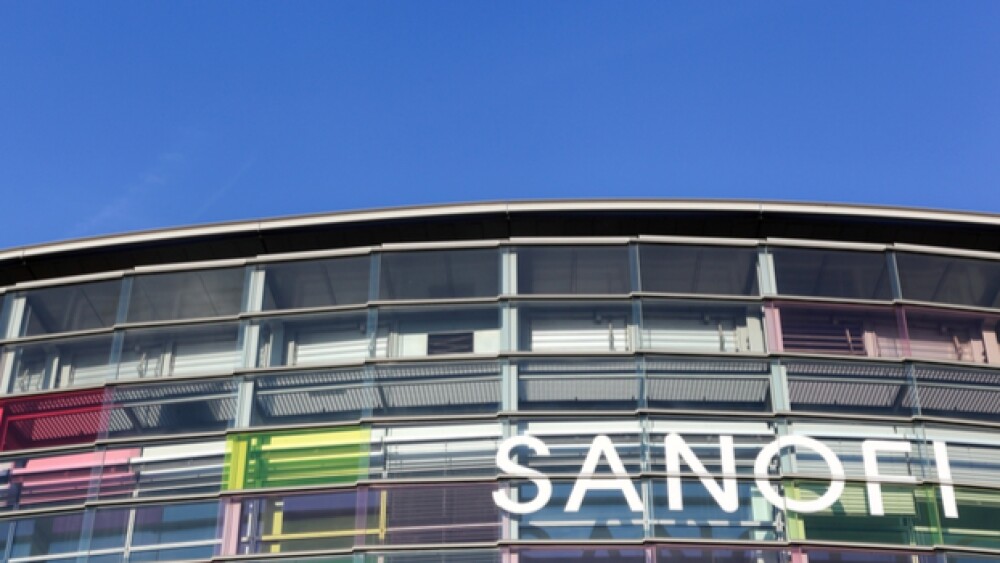Sanofi announced it is acquiring Synthorx for $68 per share in cash, a value of $2.5 billion. The deal has been unanimously approved by both companies’ boards.
ricochet64 / Shutterstock
Paris-based Sanofi announced it is acquiring San Diego-based Synthorx for $68 per share in cash, a value of $2.5 billion. The deal has been unanimously approved by both companies’ boards.
Synthorx focuses on immuno-oncology. Its lead product candidate is THOR-707, a form of interleukin-2 (IL-2) that is being developed in multiple solid tumors types as a monotherapy and in combination with checkpoint inhibitors. The companies believe it has the potential to be a best-in-class IL-2 therapeutic for solid tumors.
In addition, Sanofi will gain access to Synthorx’s Expanded Genetic Alphabet platform. This is noted as being synergistic with Sanofi’s existing platforms, including its Nanobody technology, which allows it to develop a broad range of novel biologics, including drug conjugates, protein fusions, and multi-specific biologics.
“This acquisition fits perfectly with our strategy to build a portfolio of high-quality assets and to lead with innovation, as you will hear at our Capital Markets Day tomorrow, December 10,” said Paul Hudson, Sanofi’s chief executive officer. “Additionally, it is aligned with our goal to build our oncology franchise with potentially practice-changing medicines and novel combinations.”
This marks efforts by Sanofi to push into the oncology market. It is the first multi-billion acquisition since early January 2018, when Sanofi acquired Waltham, Massachusetts-based Bioverativ for about $11.6 billion. Bioverative was a spinoff by Biogen. About a week later, Sanofi acquired Ghent-Belgium-based Ablynx for $2.4 billion. In April 2018, Sanofi sold its generics division, Zentiva, to Advent International for about $2.4 billion. Advent is a private equity firm.
Earlier this year, Sanofi reported plans to accelerate 17 drug programs. About half of those programs were in cancer. It also planned to abandon about 12 others that were under development. In August, analysts with HSBC indicated that the fastest way for Sanofi to build up its pipeline would be through mergers and acquisitions.
In 2018, Sanofi and its development partner Regeneron Pharmaceuticals received approval by the U.S. Food and Drug Administration (FDA) for Libtayo (cemiplimab-rwlc) for metastatic cutaneous squamous cell carcinoma (CSCC) or locally advanced CSCC in patients who are not candidates for curative surgery or curative radiation. It was the first immuno-oncology drug of Sanofi’s to hit the market.
Synthorx reported a net loss in 2018 of $56.6 million.
Hudson took over as chief executive of Sanofi on September 1. He immediately launched into a broad strategic review, but in October told journalists, “I am bringing a little sense of urgency and prioritization. I have set a tone already that we can move a little bit faster. I think we have the right level of resources although perhaps not always in the right place.”
Last week, Sanofi announced plans to sell its Seprafilm unit to Baxter International for $350 million. Seprafilm is a surgical products division.
“We are grateful that Sanofi has acknowledged the value of our Expanded Genetic Alphabet platform and the potential of our pipeline of optimized therapeutics for cancer and autoimmune disorders,” said Laura Shawver, president and chief executive officer of Synthorx. “Importantly, Sanofi has a portfolio of therapeutics that holds incredible promise for combining with our cytokine Synthorins to benefit patients around the world. I want to thank our employees and the Sanofi organization for their relentless efforts on behalf of patients.”





